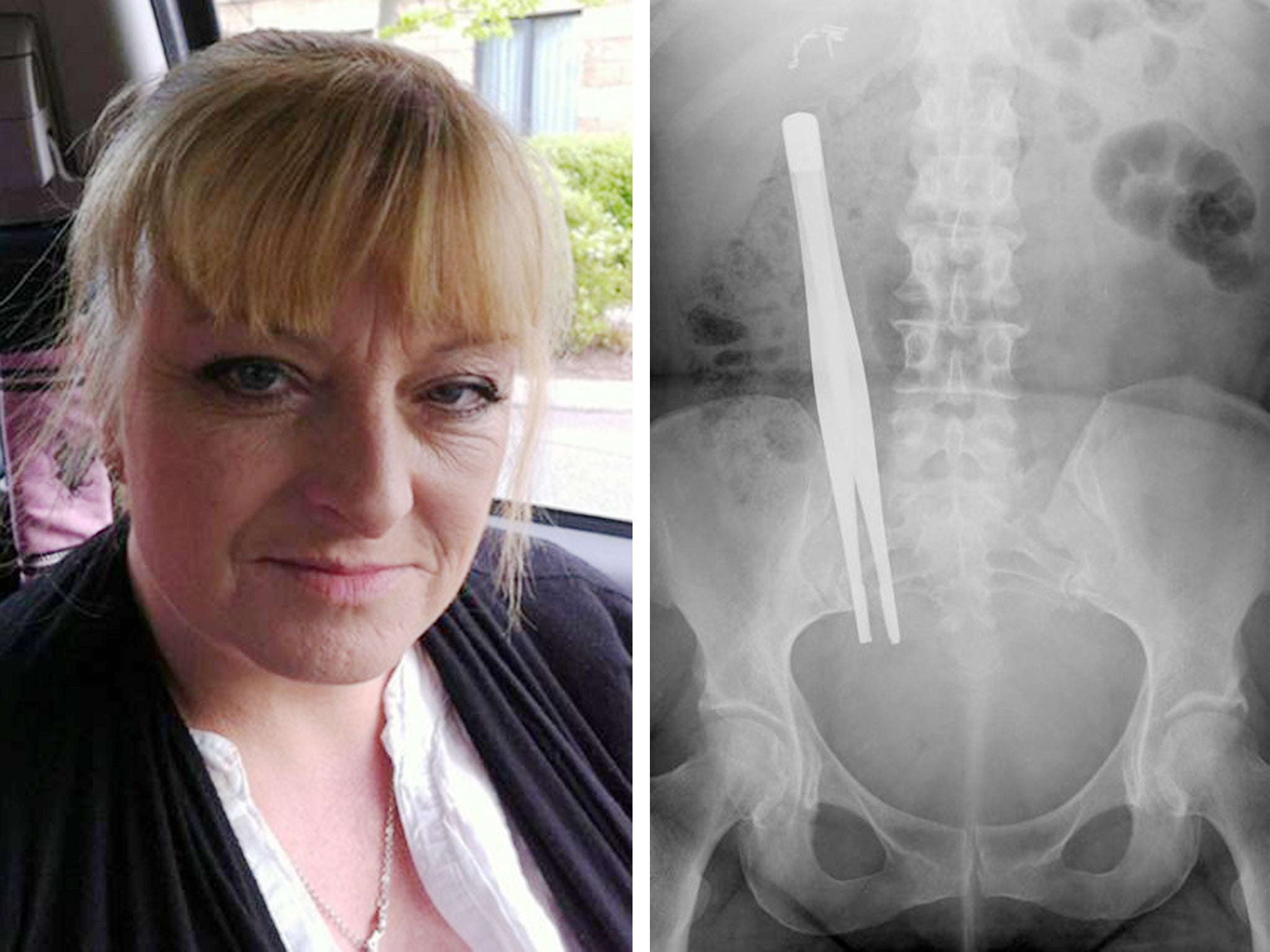Revealed: the 750 hospital mistakes that should never have happened - including 7in forceps left inside woman for three months after surgery
Investigation shows 322 cases of "foreign objects" left inside patients' bodies, 214 of surgery on the wrong body part and 58 where patients were fitted with the wrong implant

Your support helps us to tell the story
From reproductive rights to climate change to Big Tech, The Independent is on the ground when the story is developing. Whether it's investigating the financials of Elon Musk's pro-Trump PAC or producing our latest documentary, 'The A Word', which shines a light on the American women fighting for reproductive rights, we know how important it is to parse out the facts from the messaging.
At such a critical moment in US history, we need reporters on the ground. Your donation allows us to keep sending journalists to speak to both sides of the story.
The Independent is trusted by Americans across the entire political spectrum. And unlike many other quality news outlets, we choose not to lock Americans out of our reporting and analysis with paywalls. We believe quality journalism should be available to everyone, paid for by those who can afford it.
Your support makes all the difference.Hundreds of hospital patients have suffered basic, preventable mistakes that should "never" happen in the NHS during the last four years including having surgical instruments left inside them and operations being carried out on the wrong body part, figures suggest.
In the last four years more than 750 patients at hospitals in England suffered "never events" - which are serious, largely preventable patient safety incidents, according to figures obtained by Freedom of Information requests.
The data, collected by BBC Radio 4's World At One, found that there were 322 cases of "foreign objects" such as surgical instruments or swabs inside patients' bodies, 214 had surgery on the wrong body part, 73 patients had feeding tubes inserted into their lungs, and 58 patients were fitted with the wrong implant, among other incidents.
The news comes as a mother-of-four told how she was left with seven-inch forceps inside her for three months following an operation.
Donna Bowett, a former nurse, went to Alexandra Hospital in Worcestershire in February 2009 to undergo keyhole surgery to remove her gallbladder.
For the months that followed the surgery she suffered "excruciating" pain, she said.
Doctors could not explain her pain and sent her for an MRI scan - but the magnetic field from the scan caused the metal inside her body to move.
The scan was stopped when Ms Bowett started screaming with pain. Afterwards she said it felt like the instrument was trying to "pull through her skin".
The blunder was eventually picked up on an x-ray.
"I couldn't believe the pain of the MRI scan," said Ms Bowett, from Kidderminster, Worcestershire.
"Doctors asked if I had any metal on me or in my body as the scanner uses magnets, but because I was completely unaware I said no. In reality the magnets were moving the forceps inside me and trying to pull them through my skin.
"They were unable to finish the scan because I was in so much pain and I was sent for an x-ray instead. I remember the nurse saying, 'don't worry Donna, the days of them leaving instruments inside patients are long gone'. It had never even crossed my mind.
"When they found out it was forceps inside me I was told there was a risk the forceps could have damaged my bowel which is life threatening and that I might not pull through the operation. I just could not believe what was happening to me."
The 42-year-old, who still suffers pain as a result of the error, was forced to quit her role as a nurse and take on an admin role.
Ms Bowett added: "I am devastated that such a thing could happen. There is no excuse for it and I hope improvements are made and staff are trained to ensure nothing like this can happen to anyone else. I'm grateful I am now able to fund the therapy, medication and treatment I need but I still have questions as to why it happened in the first place."
Worcestershire Acute Hospitals NHS Trust, which runs the hospital, paid out a six-figure sum to pay for Ms Bowett's ongoing care and rehabilitation.
Lindsay Tomlinson, from the law firm Irwin Mitchell, who represented Ms Bowett, said: "This constitutes a 'never event' according to the NHS's own patient safety guidelines which recognises that such occurrences are unacceptable and completely preventable if the appropriate procedures have been implemented.
"Never events should be just that, events which just do not happen, and it is imperative that trusts across the entire country invest in training to ensure every step is taken to protect the safety of patients and prevent injury where at all possible."
Dr Mike Durkin, director of patient safety for NHS England, told the BBC: "Every single never event is one too many".
He added that NHS England had started collating the data to help educate staff on better practice.
"We need to understand what it is, in some systems and in some hospitals, that the team working hasn't produced an effective outcome and a mistake, and a 'never event' has occurred," he said.
"This is not just the concern of one operating theatre in one hospital. It should be the concern of the leadership of that organisation, of the trust, so that they lead that trust and support both the staff in the operating theatres to work effectively, but also recognise their responsibility for leading safety across the whole of the trust."
PA
Join our commenting forum
Join thought-provoking conversations, follow other Independent readers and see their replies
Comments